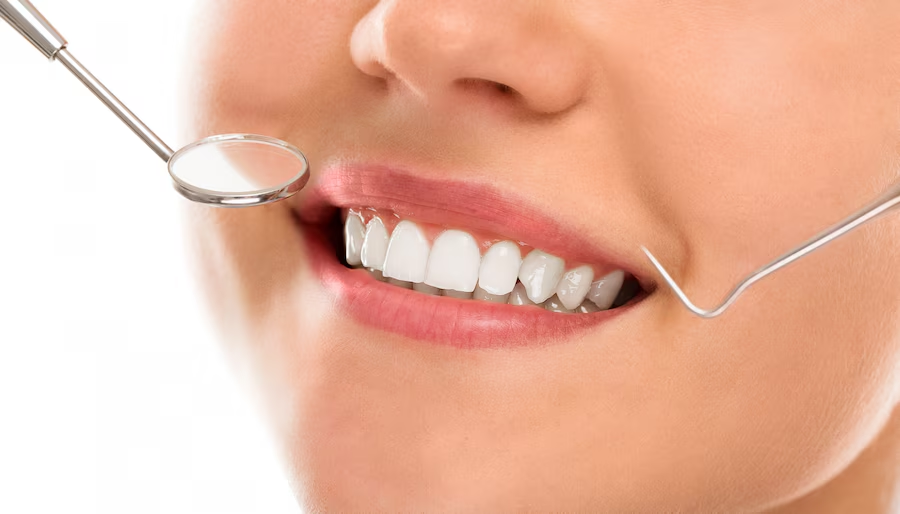From Brushing to Flossing: Best Practices for a Clean and Healthy Mouth

Table of Contents Show
Key Takeaways:
- Understand the importance of regular dental check-ups
- Learn effective at-home oral care routines
- Discover dietary choices that impact oral health
- Please find out about common dental issues and how to prevent them
Proper oral health is essential for general wellness. A healthy mouth can prevent various issues, from bad breath to severe conditions like gum disease and tooth decay. Finding reliable family dentistry Kalamazoo MI, can help provide comprehensive dental care for all age groups. This article delves into essential tips and best practices to keep your smile in top shape, ensuring that both young and old maintain optimal dental health.
Regular Dental Check-Ups
Visiting your dentist regularly is a cornerstone of good oral hygiene. Experts recommend scheduling a dental check-up every six months to catch potential issues early. According to the CDC, regular dental visits can help prevent most oral health problems, including cavities, gum disease, and oral cancer. During these visits, your dentist can perform cleanings and exams and even take X-rays to ensure your teeth and gums are healthy. Identifying problems in their early stages can save you from undergoing complex and costly treatments later on. If you require more localized care, having a dependable dental practice nearby can make a noticeable difference in your and your family’s oral health journey.
Effective At-Home Oral Care Routines
In addition to professional check-ups, maintaining an at-home oral care routine is vital. It includes brushing twice daily, flossing daily, and using mouthwash to eliminate bacteria. Resources emphasize the significance of proper brushing techniques and replacing your toothbrush every three to four months, as the bristles can wear out and become less effective over time.
- Brushing: Ensure you use fluoride toothpaste and brush your teeth for at least two minutes.
- Flossing: Daily flossing is crucial for eliminating food debris and plaque from hard-to-reach areas in your mouth that your toothbrush cannot reach.
- Mouthwash: Incorporate an antibacterial mouthwash to reduce plaque further, prevent gingivitis, and freshen your breath. Choose a mouthwash containing fluoride to offer added protection against tooth decay.
Dietary Choices That Impact Oral Health
The meals you eat can significantly affect your oral health. Sugary foods can lead to cavities, but chewing on fibrous fruits and vegetables can help clean teeth. Sugars and starches create acids that attack tooth enamel, leading to cavities over time. Incorporating calcium-rich foods like cheese, milk, and leafy greens supports stronger teeth and bones and helps neutralize the acids.
Foods to Include:
Spinach and kale, leafy greens, offer essential vitamins and minerals that support gum and enamel health.
Almonds and other nuts are packed with beneficial nutrients for dental health, including calcium and fiber.
Apples, carrots, and celery – these crunchy fruits and vegetables help produce saliva that cleanses the mouth and scrubs the teeth surfaces.
Foods to Avoid:
Sugary snacks and beverages contribute to acid production that erodes tooth enamel.
Sticky candies that can adhere to teeth can stay on teeth longer, increasing the risk of decay.
Common Dental Issues and Prevention
Understanding common dental issues such as cavities, gum disease, and enamel erosion can help you take preventive measures. Plaqbuildup-up causes cavities from tooth decay; good oral hygiene and a balanced diet can prevent this. Enamel erosion occurs due to acidic foods and drinks, which removes tooth enamel and leads to sensitivity and an increased risk of cavities.
Common Issues:
Cavities: Caused by tooth decay due to plaque buildup.
Gubuildupse: Inflammation and infection of the gums that may harm the bone supporting the teeth. Regular dental cleanings and practicing proper oral care are vital for prevention.
Enamel Erosion: Loss of tooth enamel caused by acidic foods and drinks. Using fluoride toothpaste and limiting acidic foods can protect your enamel.
The Role of Fluoride in Oral Health
Many dental products and community water supplies include safe amounts of fluoride, enhancing overall dental health. Fluoride works to remineralize the enamel by replenishing lost calcium and phosphate, making teeth more resistant to future decay.
Fluoride is present in toothpaste, mouth rinses, and professional dental procedures. Communities with fluoridated water supplies experience lower rates of tooth decay, showcasing fluoride’s effectiveness in promoting oral health.
The Importance of Hydration
Water helps wash away food particles and moisten your mouth, promoting saliva production. Saliva is vital in neutralizing mouth acids produced by bacteria, which helps protect teeth from decay. Lack of moisture in the mouth enables harmful bacteria to thrive, resulting in halitosis and dental problems.
Drinking water with fluoride can provide additional protection against tooth decay. Develop the routine of drinking water regularly during the day, particularly after eating, to promote a fresh and healthy oral cavity.
Tips for Selecting Appropriate Oral Hygiene Products
Due to the abundance of available dental products, selecting the appropriate one can feel daunting. The American Dental Association (ADA) provides a seal of acceptance to products that meet its criteria for safety and efficacy. Look for ADA-approved products to ensure you are selecting high-quality options for your oral care needs.
Toothpaste with fluoride: Essential for strengthening enamel and preventing cavities.
Soft-bristled toothbrush: This toothbrush is gentle on gums while effectively cleaning teeth. Consider utilizing an electric toothbrush for improved plaque removal.
Floss or dental picks are crucial for cleaning between teeth and removing plaque from areas a toothbrush cannot reach.
Mouthwash: Choose a mouthwash that suits your specific needs, such as those for antibacterial protection, fluoride, or sensitivity.
Comprehending the Effects of Smoking on Dental Health
Smoking can severely impact your oral health, resulting in staining, gum disease, and even oral cancer. The substances in tobacco can damage both teeth and gums and affect the general health of your mouth. Smokers have an increased chance of developing gum disease because smoking decreases the circulation to the gums, which makes them more vulnerable to infections and slows down the healing process. Quitting smoking is one of the best decisions you can make for a healthier mouth and overall well-being. If you smoke, consider seeking help to quit. Many resources and programs are available to support you in this journey. Quitting smoking improves your oral health and enhances your general health, reducing the risk of various diseases. Good oral health is fundamental to your overall health, and it starts with proper care and regular dental check-ups. By following these tips and best practices, you can achieve a healthy, sparkling smile that lasts a lifetime. Remember, a little prevention goes a long way in maintaining optimal oral health and well-being.





Responses